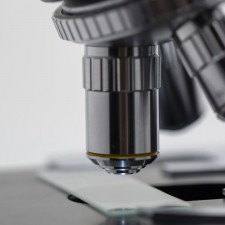News
Industry 4.0
Opinion article by Jorge Nadais Associate Partner Deloitte Consultores, S.A.
1. Introduction
The fourth industrial revolution, known as Industry 4.0, consists of merging production methods with the latest developments in information and communication technologies. This development is driven forward by the digitalization tendency of the economy and society. The technological support of this development is made possible by intelligent and interconnected “cyber-physical systems” that will enable people, machines, equipment, logistics systems and products to communicate and cooperate directly with one another.
The “industrial revolutions” began in the eighteenth century with the first steam engine and entered the twentieth century with the first assembly lines. Later, in the 70’s, the automation of production brought us the 3rd industrial revolution.
indústria 4.0
In fact, globally the industry is witnessing a digital transformation that is being accelerated by exponentially growing new technologies that (eg, intelligent robots, autonomous drones, sensors, 3D printing). The speed at which these transformations are occurring, due to new technologies, reminds us of the “Moore’s Law”. In this way, companies and their industrial processes have to adapt quickly to this new opportunity, under penalty of obsolescence vis-à-vis their competitive context.
In fact, globally the industry is witnessing a digital transformation that is being accelerated by exponentially growing new technologies that
These trends have no analogy with the increased level of automation of production processes that has been taking place since the 1970s (3rd industrial revolution), based on electronics and information technologies. Indeed, the use of a universal form of information and communication technologies by industry is opening up to disruptive approaches to the development of new products, processes and services, as well as to production systems and the supply chain.
2. The concept
In fact, the boundaries between the real world and the virtual world are blurring fast. The virtual world, in the industrial sphere, known as “cyber-physical production systems” (CPPS, is, in essence, the sum of online networks of “machines” organized in the same way as “social networks”. In a simple way, these networks link information technologies with mechanical and electronic components, which communicate with each other through the “network”. RDIF is, since 1999, a primary form of application of this technology.
In this context, “intelligent machines” continually share information on stock levels, problems or failures, as well as changes in production orders. Processes and deadlines are coordinated with the objective of promoting efficiency and optimizing processing times, promoting the use of installed capacity and quality in the areas of development, production, marketing and purchasing.
CPPSs not only interconnect “machines” with each other, but also allow the creation of intelligent machine networks, physical assets, information and communication systems, intelligent products and people throughout the value chain and the entire life cycle of product. Sensors and control systems allow machines to be linked to factories, fleets, networks and human beings.
Processes and deadlines are coordinated with the objective of promoting efficiency and optimizing processing times, promoting the use of installed capacity and quality in the areas of development, production, marketing and purchasing
Intelligent networks are the basis of intelligent factories, which are themselves the genesis of industry 4.0:
Ecosystem I4.0
indústria 4.0
3. Industry 4.0 in Portugal
As a result of the digitalization of society and industry, the end customer is now better informed and connected being able to access to a global offer. This phenomenon creates a more competitive environment even though opportunities are greater for better prepared companies. In effect, innovative technologies are available to companies in terms of trade, production and logistics which transform the relationship with the final customer, with workers and even between companies. The use of available technologies and a customer-focused approach dictate the success of the business stuff in adapting himself to the challenges of today’s markets.
indústria 4.0
Recent studies indicate that the percentage of companies launching digital transformation initiatives will be 50% by 2020 and that 67% of CEOs will focus their strategy on this transformation. The new industrial environment will be characterized by the focus on collaborative innovation, connected and flexible production means, integrated logistics chains and digital customer service and distribution channels. In short, an intelligent and connected industry model.
According to the European Commission’s Digital Economy & Society Index 2016, Portugal is above the EU average as far as the level of digital competitiveness is concerned. The Portuguese score has grown at a faster speed than the US average in recent years, currently occupying 15th position. According to this study, Portugal should focus on improving the digital skills of the population (half of the population does not have basic digital skills and 28% have never used the internet).
Another UBS study indicates Portugal above average and the 23rd most prepared economy to adopt Industry 4.0 from a set of 45 countries analyzed, with emphasis on its infrastructures, general skills and capacity for innovation.
According to the European Commission's Digital Economy & Society Index 2016, Portugal is above the EU average as far as the level of digital competitiveness is concerned
These ratings demonstrate a reasonable degree of preparation which contrasts with current competitiveness, where Portugal reaches the 35th position in 40 economies analyzed, according to the Manufacturing Global Competitiveness Index. That is, Portugal still has a process of adaptation to follow in order to make the most of this industrial revolution.
As an example, Portugal has only about a third of robots per 10,000 employees compared to Spain.
Deloitte
In general terms, we can conclude that Portugal has a better degree of preparation than current competitiveness, which makes obvious that the 4th Industrial Revolution — for the integration and approximation of markets and the integration of value chains that it provides —, is a clear opportunity to blur the barriers to the country’s competitiveness, such as the lack of internal market scale and peripheral location.
This is, in fact, a revolution that could transform the present winners into future defeated ones. As an example, the Deloitte study predicts that by 2020 the United States of America will overtake China in industrial competitiveness thanks to industry digitization and investment in Advanced Manufacturing programs.
It is therefore urgent for Portugal to also boost the accelerated adoption of this emerging technological paradigm and aim for a greater leadership role in its development.


